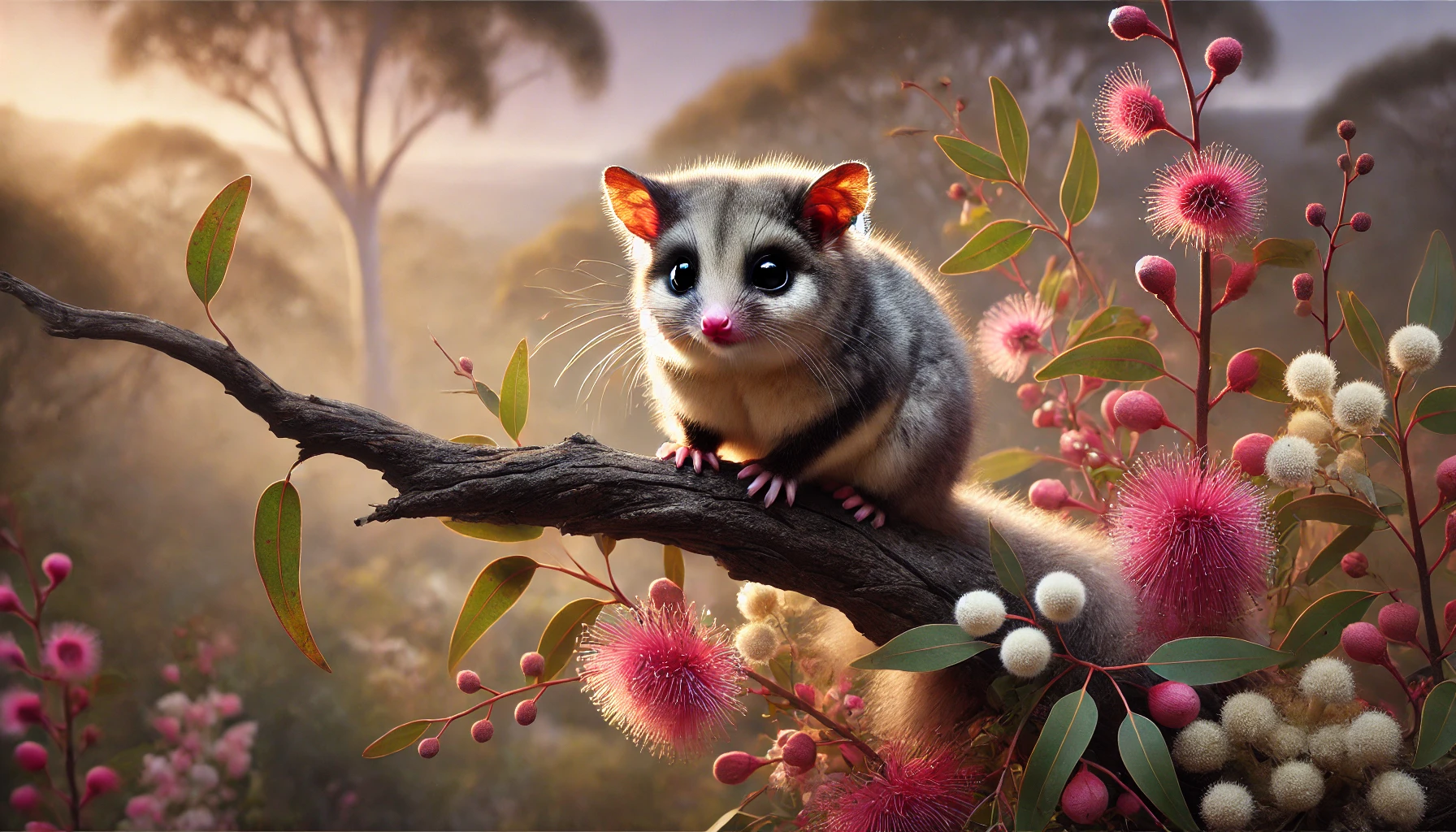Welcome to the wild and wonderful world of the Tasmanian pygmy possum! These miniature marsupials, with their captivating eyes and nimble antics, might not be as famous as kangaroos or koalas, but they are just as intriguing. Native to Australia’s lush landscapes, Tasmanian pygmy possums are a testament to nature’s creativity and resilience. Here we uncover some compelling (and incredibly adorable) facts about these charming creatures. Grab your imaginary binoculars as we delve into the fascinating life of the Tasmanian pygmy possum!
Amazing Facts About the Tasmanian Pygmy Possum

Fact 1: Pygmy Possums are Small but Mighty!
The Tasmanian pygmy possum (Cercartetus lepidus) is truly a tiny titan of the animal kingdom. Weighing in at a mere 7 to 12 grams (that’s about a teaspoon of sugar!) and measuring only 5 to 6.5 centimeters in length, they are one of the smallest marsupials in the world. Despite their minuscule size, they manage to thrive in the rugged Tasmanian wilderness and parts of mainland Australia.
These petite possums have a prehensile tail that’s almost twice the length of their body, which acts like an additional limb, helping them balance and maneuver through trees and shrubs with ease. The tail isn’t just for show—it’s a crucial tool for these arboreal acrobats, enabling them to navigate their forested homes stealthily.
Their diminutive size doesn’t stop them from having a big personality! Tasmanian pygmy possums are known for being curious and agile, able to leap from branch to branch with formidable speed and dexterity. This body design proves advantageous for a life spent mostly off the ground, safely away from predators.
Fact 2: Masters of Disguise
When you’re small and surrounded by potential threats, blending into your environment can be a lifesaver. The Tasmanian pygmy possum’s fur serves as an excellent means of camouflage, varying from grey to fawn, which allows it to melt into its surroundings effortlessly. This natural attire acts as a cozy shield against both predators and the elements.
Their nocturnal lifestyle complements their expertise in evasion. By foraging under the cloak of darkness, these critters can avoid many diurnal predators. You could say these possums are essentially the James Bonds of the bush—efficient, stealthy, and with a knack for avoiding unwanted attention.
Fact 3: Pygmy Possums are Energy Efficient
In the unpredictable climate of Tasmania, food resources can fluctuate dramatically with the seasons. The Tasmanian pygmy possum has developed a remarkable strategy to withstand such environmental challenges: entering a state of torpor. Similar to hibernation, torpor is a short-term energy-saving mode where the possum significantly lowers its metabolic rate, reduces its heart rate, and even drops its body temperature.
This adaptation is a brilliant survival tactic, allowing these cute critters to conserve energy during times of food scarcity, like the chilly winter months. While in torpor, the possum appears lifeless and unresponsive—sort of like the marsupial equivalent of hitting “snooze” on life’s demands until things warm up again.
Fact 4: Pint-Sized Foodies
Despite their pint-sized stature, Tasmanian pygmy possums are foodies in their own right. These omnivores enjoy a varied diet that includes nectar, pollen, fruits, and small insects. Their fondness for nectar makes them important pollinators, playing a crucial ecological role by helping propagate various plant species, much like bees and butterflies.
The ability to switch between plant-based and protein-rich diets gives these possums an edge in the Tasmanian ecosystem, allowing them to adapt to seasonal variations in food availability. It’s like having the best of both worlds—a delicious dinner of fresh nectar followed by protein-packed insects for dessert!
Fact 5: Solitary Foragers
In the wild, Tasmanian pygmy possums lead mostly solitary lives, preferring to spend their nights foraging alone. However, when food is abundant or during the breeding season, they might not mind a bit of company. These possums form social groups occasionally, showing off their surprisingly complex social interactions.
Despite their solitary tendencies, their communal living during breeding periods helps ensure the survival of their offspring. Female possums are known for being excellent mothers. While their litters are relatively small, with typically just one to four young, each joey receives ample care and nurturing, safely snuggled in their mother’s pouch until ready to venture out.
While the Tasmanian pygmy possum is adept at adapting to its environment, it is not immune to threats. Habitat destruction, climate change, and predation from non-native species like cats and foxes pose significant risks. Efforts are in place to study and conserve these miniature marsupials through habitat restoration, conservation programs, and increased public awareness.

